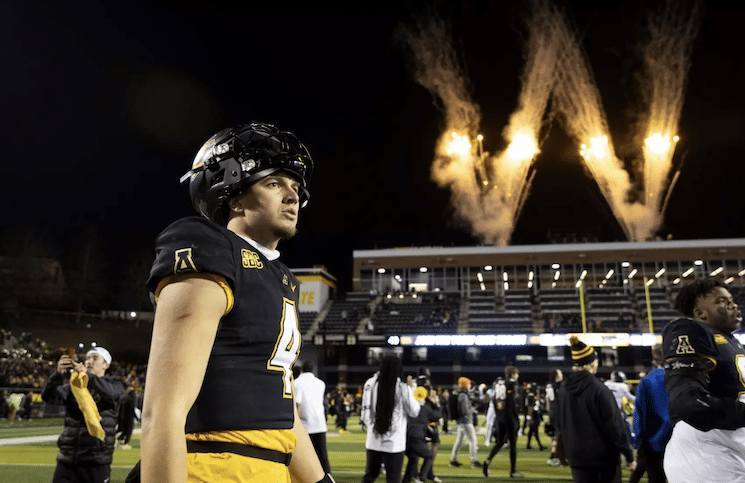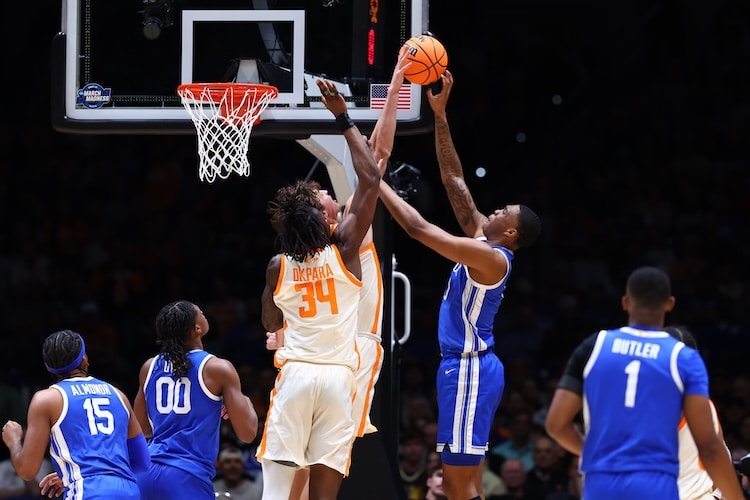
The collective breath holding of True Detective fans during the final two minutes of the second episode felt almost audible. After months of anticipation, followed by days of frustration with an anticlimactic first episode, we finally found ourselves on the edge of our seats again. Is it actually possible that the (widely agreed upon) most compelling character on the show is dead after just two weeks? If we learned anything from the first season it’s that making educated guesses about the direction in which Pizzalotto will take his storyline is about as useful as supporting feminism by having body image issues. More on the future with, or without, Ray Velcoro later, let’s take stock of the rest of the Vinci Task Force.
Vince Vaughn is getting pushed around on screen by actors with better chops to play the roles they were given. Vaughn’s character, Frank, opens the episode with a creepy monologue about his childhood, and the sins of his abusive father. He speaks the native True Detective language, a story about being locked in a cellar with darkness and mice, only to wonder aloud whether or not he died in that cellar and the rest of his life has been a dream, or even hell? The theme of the scene and the words themselves were cut from an identical cloth Pizzalotta used to craft for McConaghey’s existential riffs in season one, but Vaughn simply can’t find his voice in them. Frank lost everything when the Caspere deal went wrong, and now his ambitions to go straight have been put on hold. Episode two attempts to show us Frank sliding backwards into the muck, towards a world in which force and aggression trump honorable intentions. Frank may have the most to lose of any character we’ve seen, but we’re forced to infer his desperation as Vaughn has yet to deliver it on screen.
Paul Woodrugh (Kitsch) is always listening, and very rarely speaking, but when he does, he speaks volumes. It turns out Patrolman Woodrugh wasn’t taking Viagra in episode one to cure dysfunction, he chomped the little blue pill because he isn’t interested in women at all. Long, painful stares at a male prostitute and the heavy handedness of his story about being accosted by a “fag” tipped us off to a tormented man desperate to remain the closet. Paul has yet to make a real impact within the narrative, but I expect that if Velcoro is really dead he will become more central.
Ani Bezzerides (McAdams) looks cool smoking that robot penis-er-vape cigarette where most people don’t, according to Velcoro anyway. The lady detective continues to showcase her rough edges whenever she’s given an audience. As she attempts to work Velcoro during their road trip around California, she makes sure he knows that if he were to ever lay a hand on her that he would bleed out in a matter of seconds. Bezzerides casts judgment often in the show, but also seems to have interests in both porn and gambling, so her apple has fallen closer to the family tree than she’d like to admit. If Colin Farrell is truly out of the picture, McAdams will be relied upon to create the friction and carry the script. She’s the most intriguing character of the three (assuming again that Farrell is gone) and based on the previews for next week it’s about time for Bezzerides to take point in the investigation.
Is Velcoro dead at the hands of a giant bird man? Based on the immediate Twitter reaction to the show, the final two minutes of episode two re-lit the public flame for True Detective. A scene littered with pagan imagery and impregnated with the an eerie silence leading up to the first shot, it was everything we remember loving about the first season, and a welcome break from world building and character development. It’s crazy to imagine that such a pivotal character, and a celebrity of Farrell’s caliber would make such an early exit, but a Velcoro departure might actually be required to allow the other actors to flex their muscles and redirect the series to a more interesting place. My guess is that Ray is alive, but is out of the spotlight for a few episodes, which means the waitress at his favorite bar won’t make rent next month with the absence of his tips. Why did Velcoro lower his gun when he saw the pool of blood on the floor? Ani asked what was, in my opinion, the most pertinent question yet; exactly how compromised was Ray?
Ballers
I can’t remember an opening theme to a show that I’ve enjoyed more than the montage Ballers has pieced together, as completely random as it may be, it sets the tone for the show to perfection. The second episode was better than the first, and Dwayne “the Rock” Johnson is a pleasant surprise in a role where he is allowed to deliver meaningful lines without punching people in-between them. It may have been premature and unfair to lump Ballers in with Entourage as a decadence documentary, as the show is clearly striving to tell a real story. Sure, we see lives of luxury and unimaginable wealth, but the show (so far) is really about the price paid by each character to get there.
Spencer (Johnson), down to his last $3,000, needs a contractual signature from Vernon, a defensive lineman who has spent every penny of his $12 million rookie deal. Spencer has to deal with Vernon’s family, a collection of leeches attached to Vernon’s wallet, and a childhood friend turned financial manager. No twists or choreographed fist fights in their interaction, but rather a surprisingly touching and logical delivery from Spencer about the dangers of supporting your crew before you take care of yourself. Logic wins out, and Vernon gives Spencer control of his finances. This dialogue, along with the other characters daily interactions with their respective entourage’s are believable, and build a feeling of compassion towards millionaires that Entourage never pulled off. With momentum from his Vernon victory, Spencer has to find new clients, and the previews for next week indicate we’re finally going to see both heavy alcohol consumption, and maybe even a fight. Peak Rock scenario, it had to happen at some point, right?
Ricky Jerret (John David Washington) has the ego and quirky personality of a big-time NFL receiver down pat. The newly- signed Dolphin is equal parts bravado and vulnerability. Showing up to workouts five minutes early gets the attention of his new coaches, but he quickly becomes distracted after another player refuses to give up the number 81. Ricky offers his teammate up to $60,000, which is declined. We later learn that 81 was Ricky’s fathers number, again offering a softness to a character with edge. It’s clear that Ricky needs the same type of guidance that Spencer offered to Vernon, so it’s time for the Rock to be dad again.
Charles Greane (Omar Benson Miller) is learning how to sell trucks, even pretending to read sales books in the presence of his wife. A brief interaction with a Miami coach over a sales pitch causes a return to self doubt for Charles, did he retire too early? Greane is easily the most lovable character in the show, but for the very reasons that make him less believable as a NFL player than his cast mates. Charles clearly can’t keep selling cars, but can he show the toughness required to get back in to football?
Rob Cordy delivers the line of the season thus far, admitting that he purchased a Buick based off Peyton Manning’s commercials, only to be hilariously devastated to learn that Peyton actually drives a Mercedes. Cordry is doing his thing well, and is given only enough screen time to be effective. Ballers is in the Red Zone for the first time, now we’ll get to see if it can score.
The Brink
The Brink has reached peak garbage status in just its second episode, and deserves to be discussed about as much as it deserves to be viewed. An unbelievable disappointment for a very accomplished cast, and a surprise for a network like HBO that almost never misses on a show this badly. Tim Robbins is unbearably bad as the hard-partying Secretary of State, delivering line after line of American Pie esque humor that simply never lands. What’s worse is that Robbins actually directed this episode, implying that he had an opportunity to make changes and just didn’t do it.
Jack Black can still be funny, but the laughs he earns derive from Jack Black cultivating such a specific and unique brand of comedy, not the lines he’s given. The Brink is so cheaply made that at times it felt like I was watching an improv class struggle through its first performance. It’s difficult to keep up with the loose connection between Black’s plot line and the rest of the show, with each scene very randomly attached to the next.
Pablo Schreiber has serious comedy chops, and works with what he’s given here admirably. His pre-mission breakfast buffet of drugs leads to a series of errors, including accidentally blasting an Indian drone in Pakistani airspace. Schreiber is a dim light, in a sea of horrible darkness that is the final stop of HBO’s Sunday night lineup.




